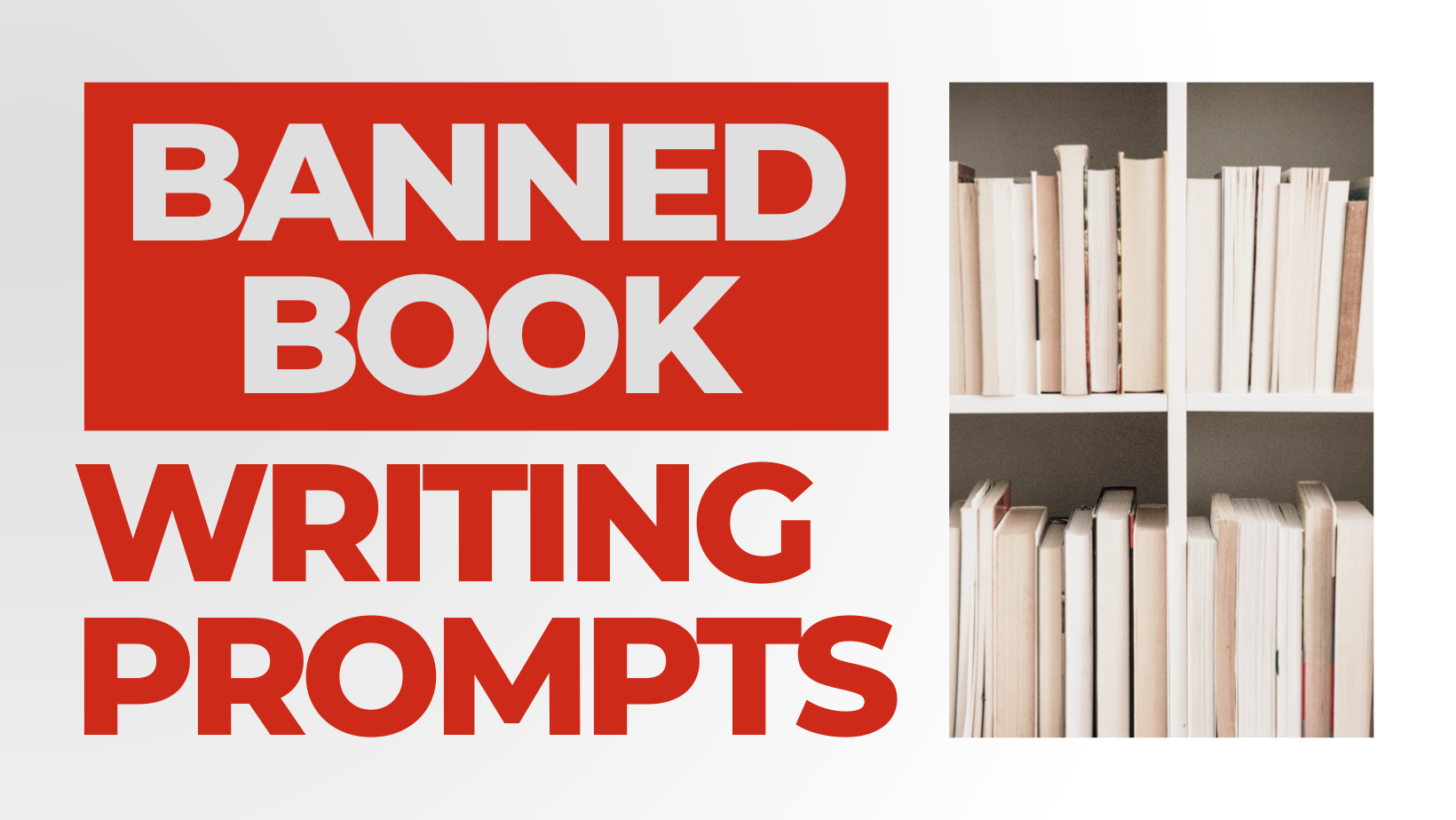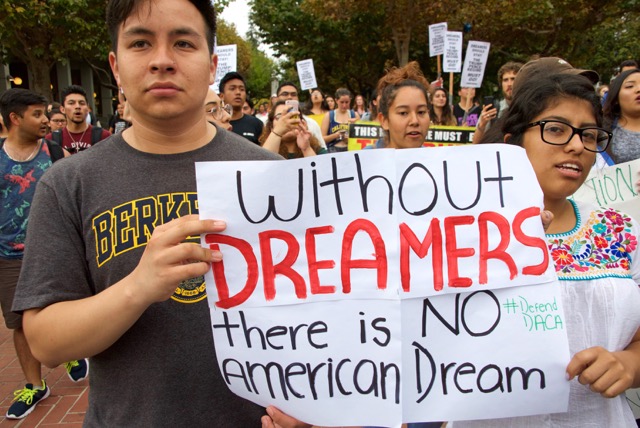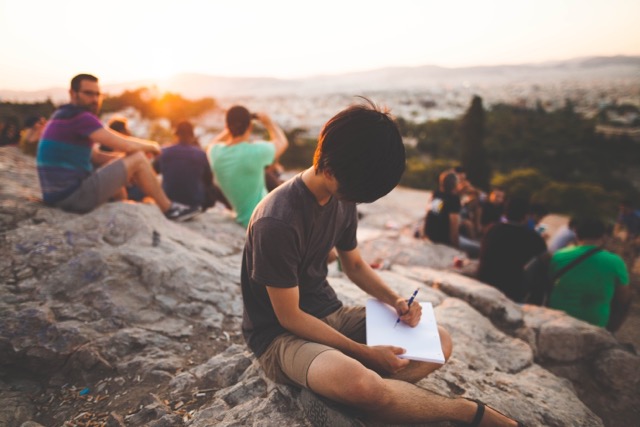In Banned Book Writing Prompts, a new series in Teachers & Writers Magazine, we aim to push back against the growing movement to censor what students can read and to show what happens when we enthusiastically embrace banned works rather than fear them.
The series is being launched to coincide with the American Library Association’s Banned Books Week, which “celebrates the freedom to read and spotlights current and historical attempts to censor books in libraries and schools.”
The news is alarming, to say the least. Book bans and challenges have surged in the last few years in state after state across the country. As teachers and writers, we have been watching this trend with distress and outrage.
School districts in at least 32 states are now enacting bans on numerous titles. According to the American Library Association, the number of attempted bans is the highest it has recorded since it began tracking this form of censorship 20 years ago.
We aim to push back against the growing movement to censor what students can read and to show what happens when we enthusiastically embrace banned works rather than fear them.
These bans are specifically targeting diverse stories. According to data collected by PEN America, the bans are disproportionately aimed at books that include LGBTQ+ characters and themes, books that feature people of color, books that address issues of race and racism, and books about sexuality and gender. This growing censorship campaign is also pushing for changes in law and policy that would make it easier to remove books from library shelves.
Proponents of book bans often justify their book challenges to individual titles by focusing on a small section of a book—taken out of context—at the expense of everything that the work has to offer. This narrow-minded approach results in students being denied access to writing by authors from Elizabeth Acevedo to Ocean Vuong, Sherman Alexie to Zora Neale Hurston, Alison Bechdel to Toni Morrison.
At Teachers & Writers Collaborative, we believe that it is essential for student writers to see themselves—their lives and dreams and struggles—reflected in the books they read. When books that feature a diversity of identities and perspectives are taken away from students, they are robbed of an essential tool for finding their own voices and denied the models that might inspire them to tell their own stories. It is equally important that students have access to books that challenge them, that introduce them to people, places, ideas, and experiences that broaden their horizons and nurture their compassion for others.
When books that feature a diversity of identities and perspectives are taken away from students, they are robbed of an essential tool for finding their own voices and denied the models that might inspire them to tell their own stories.
In this series, we have asked poets, playwrights, essayists, writers of fiction and nonfiction, spoken word artists, visual artists, and others to reflect on what a specific banned work has meant to them and what it has to offer to students, and to pair these reflections with thought-provoking creative writing prompts inspired by the book.
Whenever possible, we will include excerpts from the books and information on how to access the featured titles in digital form, so that these essays and prompts may be enjoyed by all, including those who live in places where the works have been banned or are unavailable.
In addition, in the coming months we hope to feature selected student responses to these prompts on our website to showcase the creativity that the featured books can inspire!
If you’d like more information on the current state of book bans in the U.S. and how you can defend the freedom to read, check out the links below. We’ve also included links to the Brooklyn Public Library’s Books Unbanned Library Card application, now available through Seattle Public Library as well. These e-library cards are available nationwide to teens and young adults, age 13 and up, and allow access to the library’s full e-book collection, where you can find many of the titles written about in this series.
It is our fervent hope that this series will call attention to what is lost when students are denied access to books, will support the push to keep diverse books accessible to all, and will champion the freedom of expression that we believe is essential to creative culture.
Banned Books Resources
- American Library Association Banned Books Week (October 1-7, 2023) – Banned Books Week offers an opportunity for readers to voice censorship concerns, celebrate free expression, and show their communities the importance of intellectual freedom.
- Brooklyn Public Library – Books Unbanned Library Card Application
- Seattle Public Library – Books Unbanned Library Card Application
- The American Library Association – ALA Information on Banned and Challenged Books
- The American Library Association – ALA Freedom to Read Statement
- PEN America – Banned in the USA: The Mounting Pressure to Censure
- The New York Times Learning Network – What Students Are Saying About the Growing Fight Over What Young People Can Read
Susan Karwoska is a writer, editor, and teacher. She is the recipient of a New York Foundation for the Arts (NYFA) Fellowship in Fiction; a Lower Manhattan Cultural Council Workspace residency for emerging artists; and residencies at the Ucross Foundation and at Cummington Community of the Arts. From 2005-2014 she was the editor of Teachers & Writers Magazine and currently serves on its editorial board. She is also on the board of the New York Writers Coalition, and has served on NYFA’s artist advisory board. She writes and edits for a variety of publications and organizations, works as a writer-in-the-schools, and lives in Brooklyn, New York, where she is at work on a novel.



